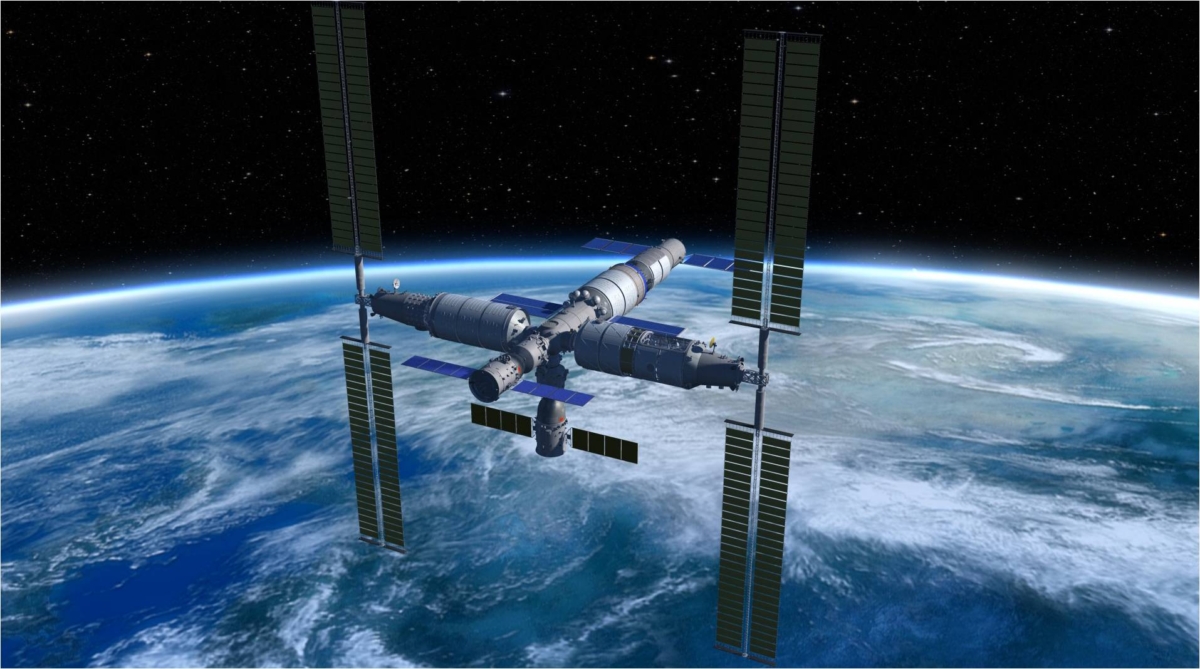
China's Space Station Will Be Open to Science from All UN Nations

China is working with the United Nations to help arrange scientific experiments aboard that country's space station.
The United Nations Office for Outer Space Affairs (UNOOSA) and China's Manned Space Agency have invited applications from UN member states to conduct experiments on China's space station (CSS).
In 2016, the two signed a memorandum of understanding to work together to develop the space capabilities of UN member states via opportunities to use the station, which China expects to be operational by 2022. [Gallery: Tiangong 1, China's First Space Laboratory]
The "announcement of opportunity" and application instructions for this initiative were released at a ceremony hosted by UNOOSA and the Permanent Mission of China to the United Nations and Other International Organizations in Vienna on Monday (May 28).
According to a UN press release, "the UNOOSA-CMSA initiative aims to:
- "promote international cooperation in human spaceflight and activities related to space exploration;
- "provide flight experiment and space application opportunities on-board the CSS for United Nations member states;
- "promote capacity-building activities by making use of human spaceflight technologies, including facilities and resources from China's human spaceflight program; and
- "promote increased awareness among United Nations Member States of the benefits of utilizing human space technology and its applications."
Space diplomacy
"This is space diplomacy in action," UNOOSA Director Simonetta Di Pippo said in the statement. "I appreciate China's partnership and support on this exciting initiative, and look forward to seeing a number of interesting applications from United Nations member states."
"The China Space Station belongs not only to China, but also to the world," added Ambassador Shi Zhongjun, representative of China to the United Nations and other International Organizations in Vienna.
Get the Space.com Newsletter
Breaking space news, the latest updates on rocket launches, skywatching events and more!
"Just as the Outer Space Treaty of 1967 proclaimed, the exploration and use of outer space shall be a common province for humankind," Shi added. "Outer space should become a new domain for promoting the common interests of everyone, rather than a new battlefield for competition and confrontation."
Orbital experiments
There are three possibilities for orbital experiments in the first round of opportunities, according to the UN press statement. Participants can conduct experiments inside or outside the CSS using payloads they develop, or they can perform experiments inside the station using facilities provided by China.
Public and private organizations including institutes, universities and companies can apply for the opportunity; the deadline is Aug. 31, 2018. Institutions from developing countries are particularly encouraged to apply, UN officials said.
Leonard David is author of "Mars: Our Future on the Red Planet," published by National Geographic. The book is a companion to the National Geographic Channel series "Mars." A longtime writer for Space.com, David has been reporting on the space industry for more than five decades. Follow us @Spacedotcom, Facebook or Google+. This version of the story published on Space.com.
Join our Space Forums to keep talking space on the latest missions, night sky and more! And if you have a news tip, correction or comment, let us know at: community@space.com.

Leonard David is an award-winning space journalist who has been reporting on space activities for more than 50 years. Currently writing as Space.com's Space Insider Columnist among his other projects, Leonard has authored numerous books on space exploration, Mars missions and more, with his latest being "Moon Rush: The New Space Race" published in 2019 by National Geographic. He also wrote "Mars: Our Future on the Red Planet" released in 2016 by National Geographic. Leonard has served as a correspondent for SpaceNews, Scientific American and Aerospace America for the AIAA. He has received many awards, including the first Ordway Award for Sustained Excellence in Spaceflight History in 2015 at the AAS Wernher von Braun Memorial Symposium. You can find out Leonard's latest project at his website and on Twitter.









